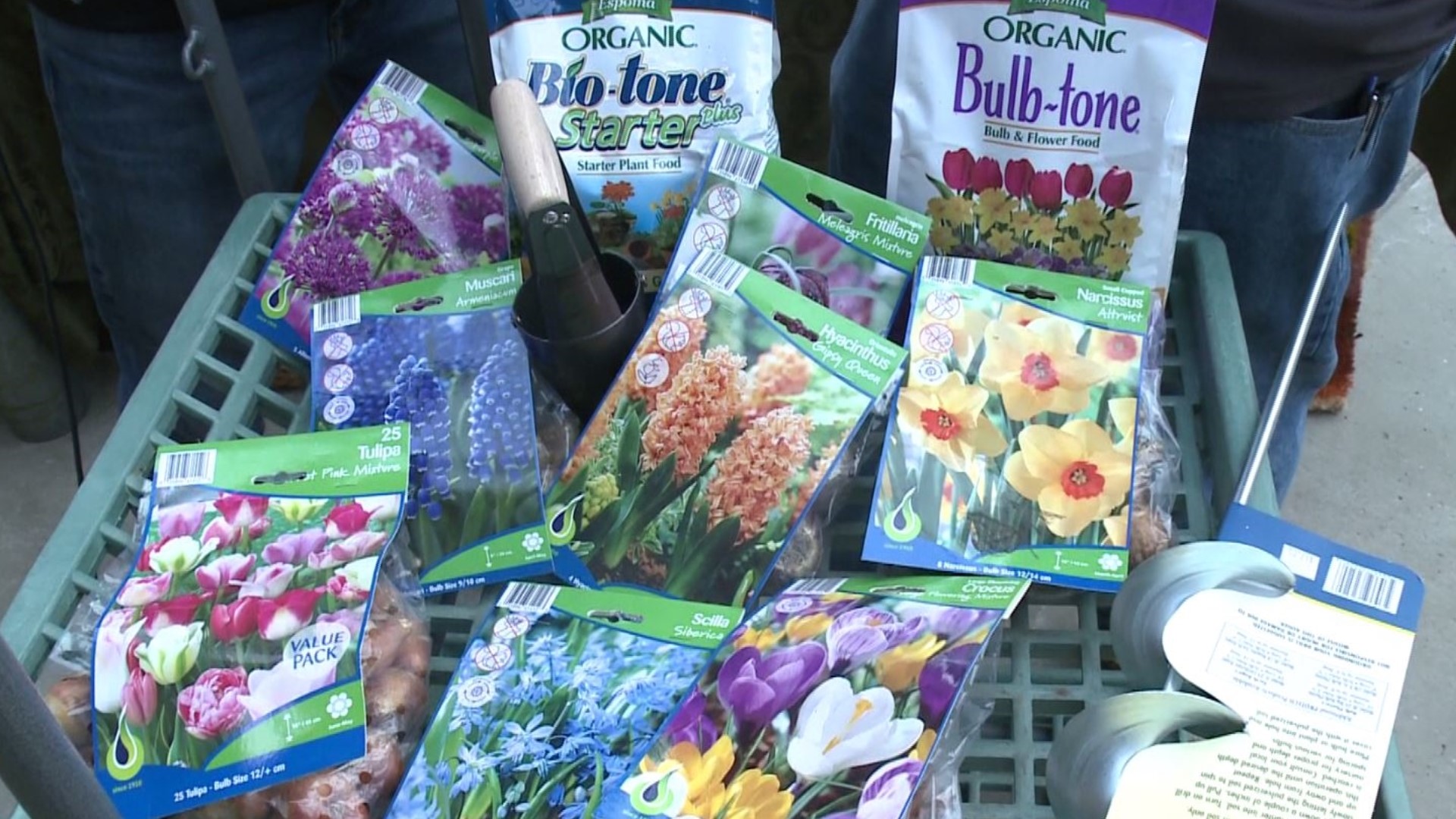MAINE, USA — It's time to get bulbs in the ground for a beautiful spring. Gardening with Gutner talked with Tom Estabrook of Estabrook's garden center in Yarmouth to find out his favorite varieties and how to have a successful planting this fall.
"As long as the ground is not frozen, we can plant bulbs," Estabrook explained after stressing the importance of getting the bulbs you want now, because the later in the season, the less you have to choose from.
Tulips. Deer love tulips. Put the bulbs close to your house. Estabrook treats Tulips as an annual, because they don't come back well.
"We can dig these up in the spring and throw them in the compost pile and move on," Estabrook said.

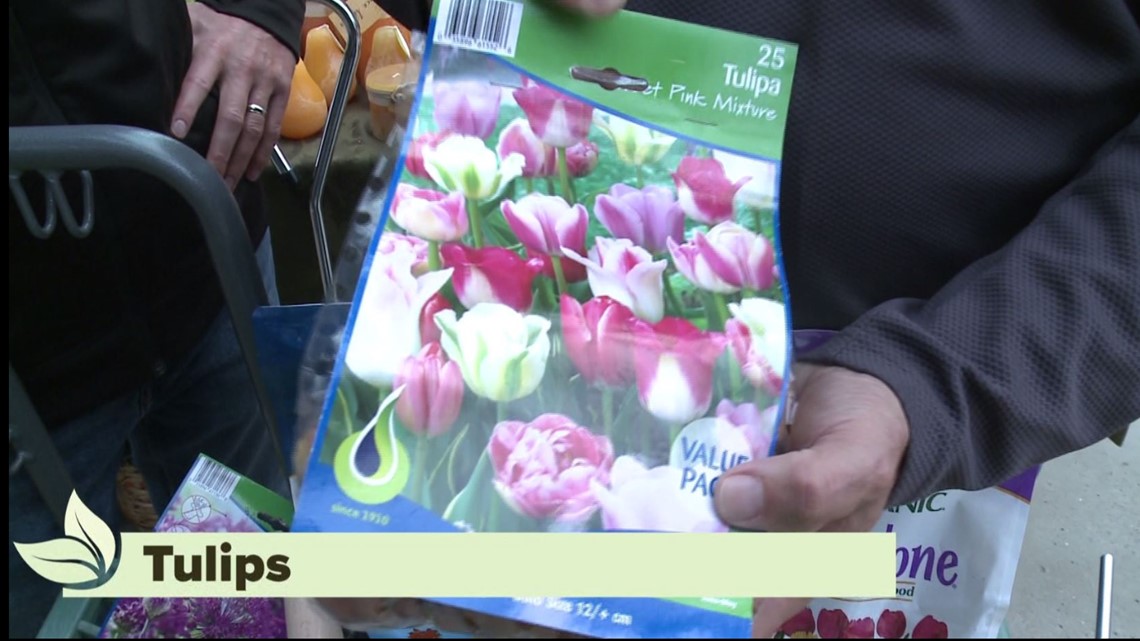
Scilla. This is a great flower for the lawn, but it needs to be in an organic lawn. Weed killers will not allow this plant to grow. Your lawnmower will spread the seeds. It's great for early pollinators.

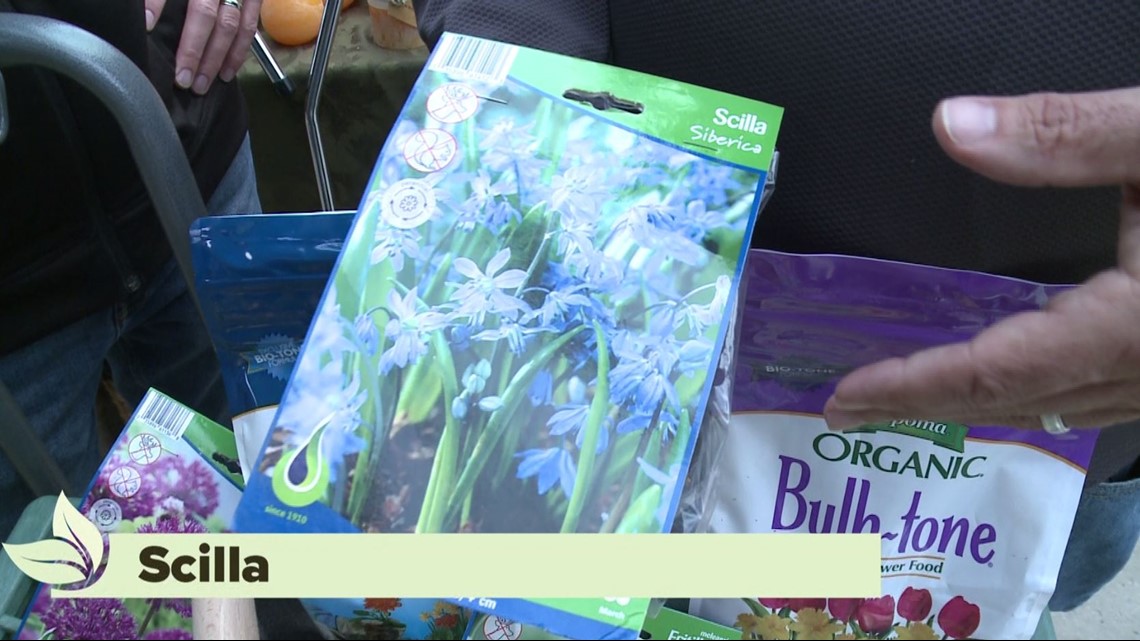
Crocus. Put these in places where the snow disappears first. Blooms for a very short time.

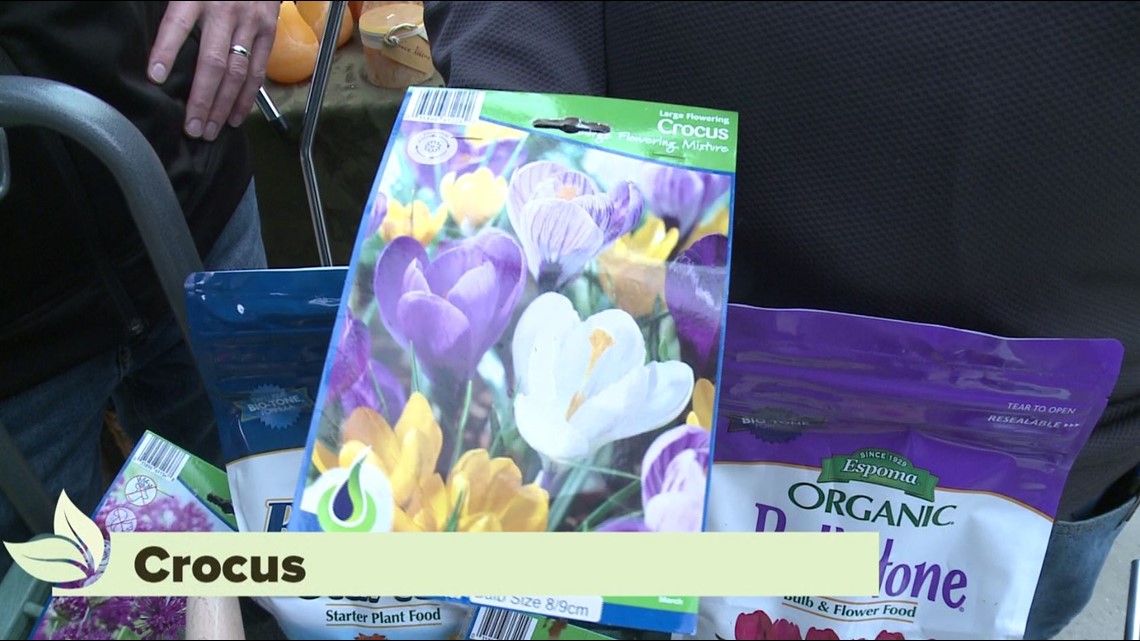
Estabrook emphasized not to overthink how you lay your bulbs out while he showed a bag of daffodils.
"My suggestion is to open up the bag, throw them on the ground, wherever they lay, plant them," Estabrook recommended. "Keeps a very naturalized look. If you plant soldiers in a row, it looks very unnatural."
Fritillaria. While it's unique and beautiful, it smells like skunk. Don't put it near the patio or front door.

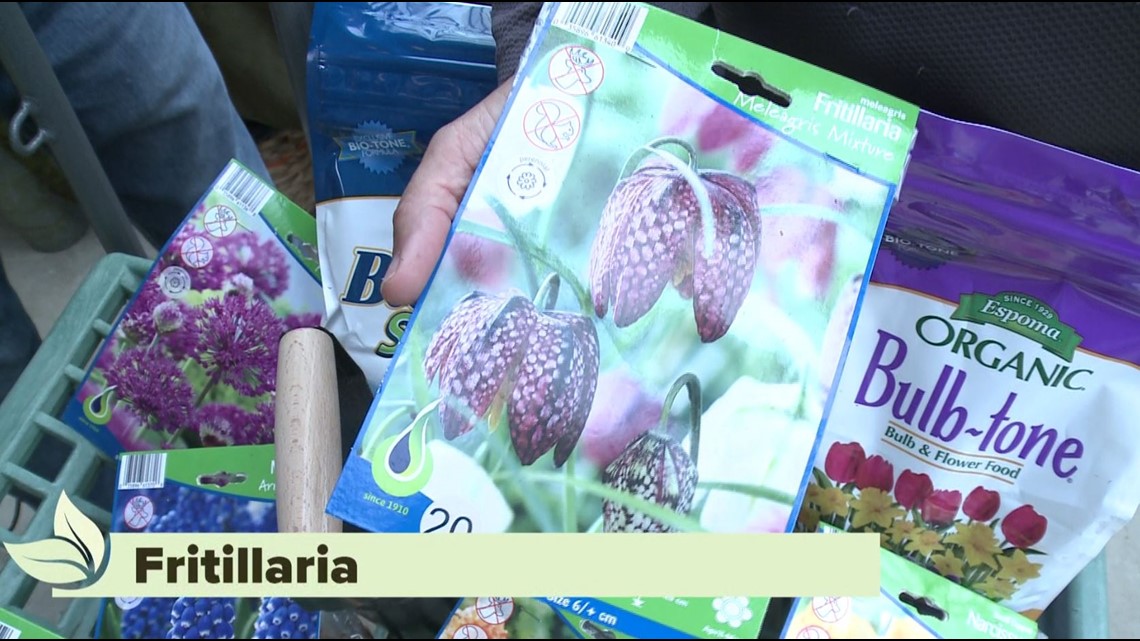
Hyacinth. Smells wonderful! Great to put around a patio.

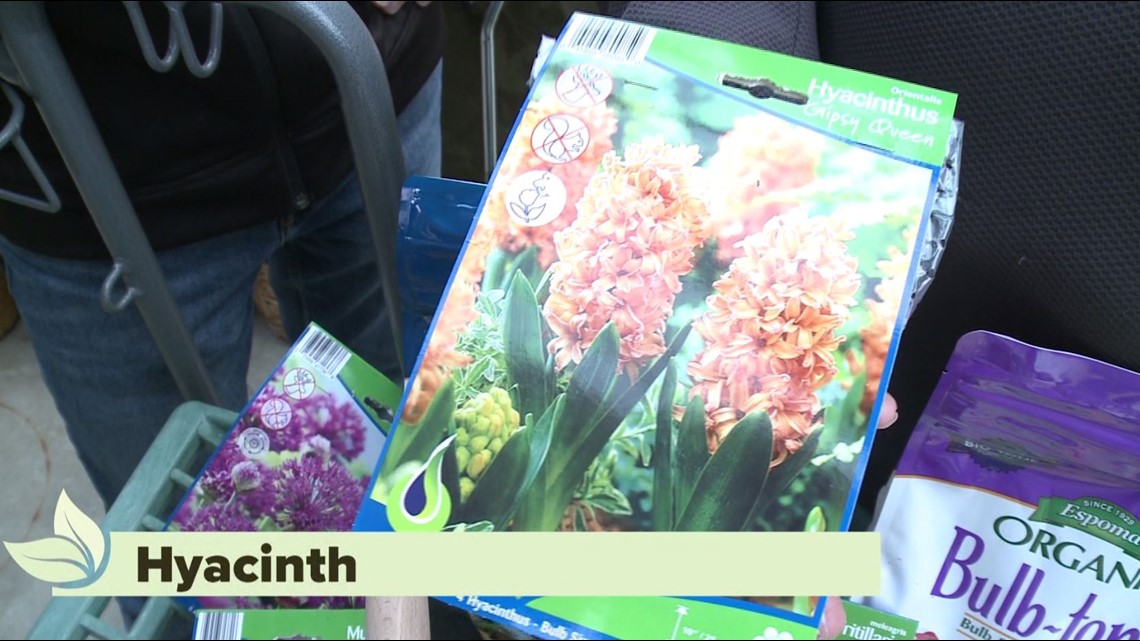
Allium. It acts like a perennial. Plant in clusters. It will continue to get larger. The seed pods look nice in a perennial garden.

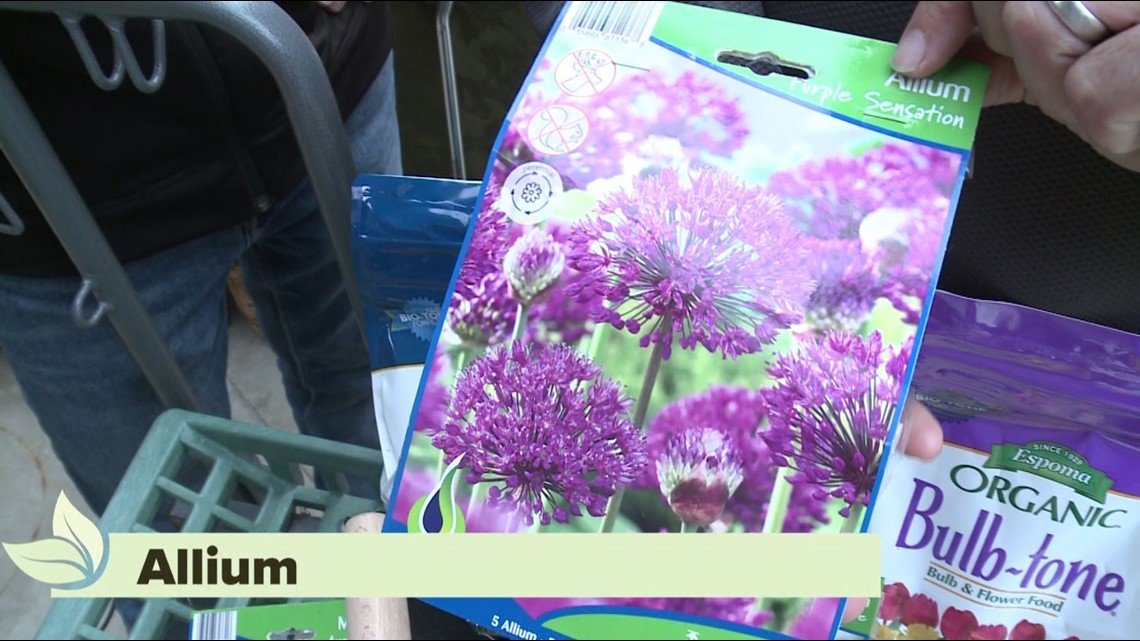
The right bulb tool is important to make gardening effortless. Estabrook demonstrated an auger that attaches to a drill that makes big bulb plantings easier. A hand planter is better for softer soil, while a bigger planter, that you would use like a shovel, works for harder ground.
Bone meal has traditionally been used as a fertilizer for bulbs, but Estabrook recommended fertilizer with little to no bone meal< because rodents are attracted to the ingredient. Bulb-Tone has very little bone meal, so that should decrease the number of rodents, but Bio-tone has no bone meal.

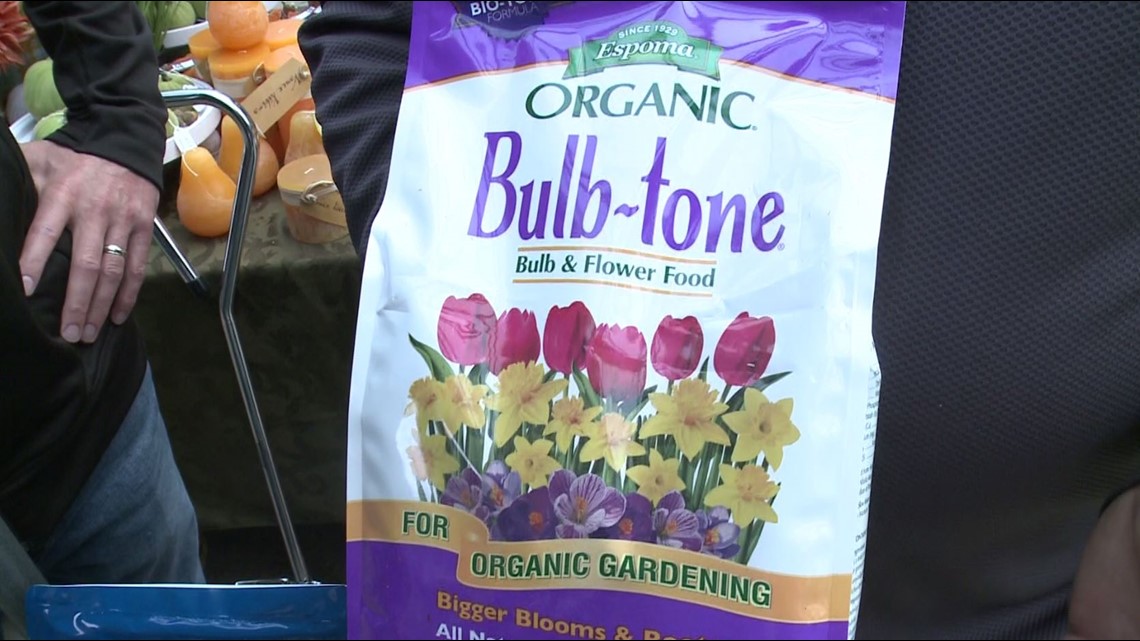
"This (Bio-tone) will attach to the roots of the bulbs, make them branch, and make them stronger," Estabrook instructed.

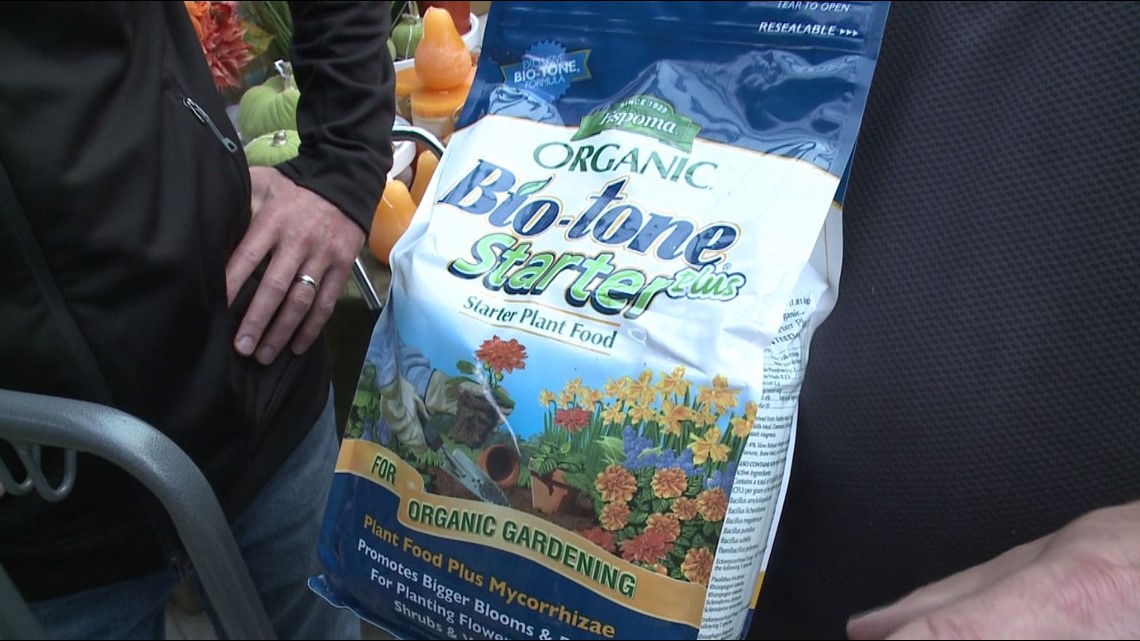
The nursery owner wrapped up the growing season by encouraging gardeners to be thinking of what they can do indoors through the winter.
"It never ends. We're always planning for the next season. Also, there's a lot of things indoors you can do to keep the kids engaged and also keep you engaged in your gardening venture."

